David Moyes interview: Former Manchester United manager reveals 'I am staying in Spain' ahead of Barcelona challenge
The only British manager in a major Continental league takes his Real Sociedad to Barcelona on Saturday. David Moyes tells Pete Jenson why he has no plans to return home yet
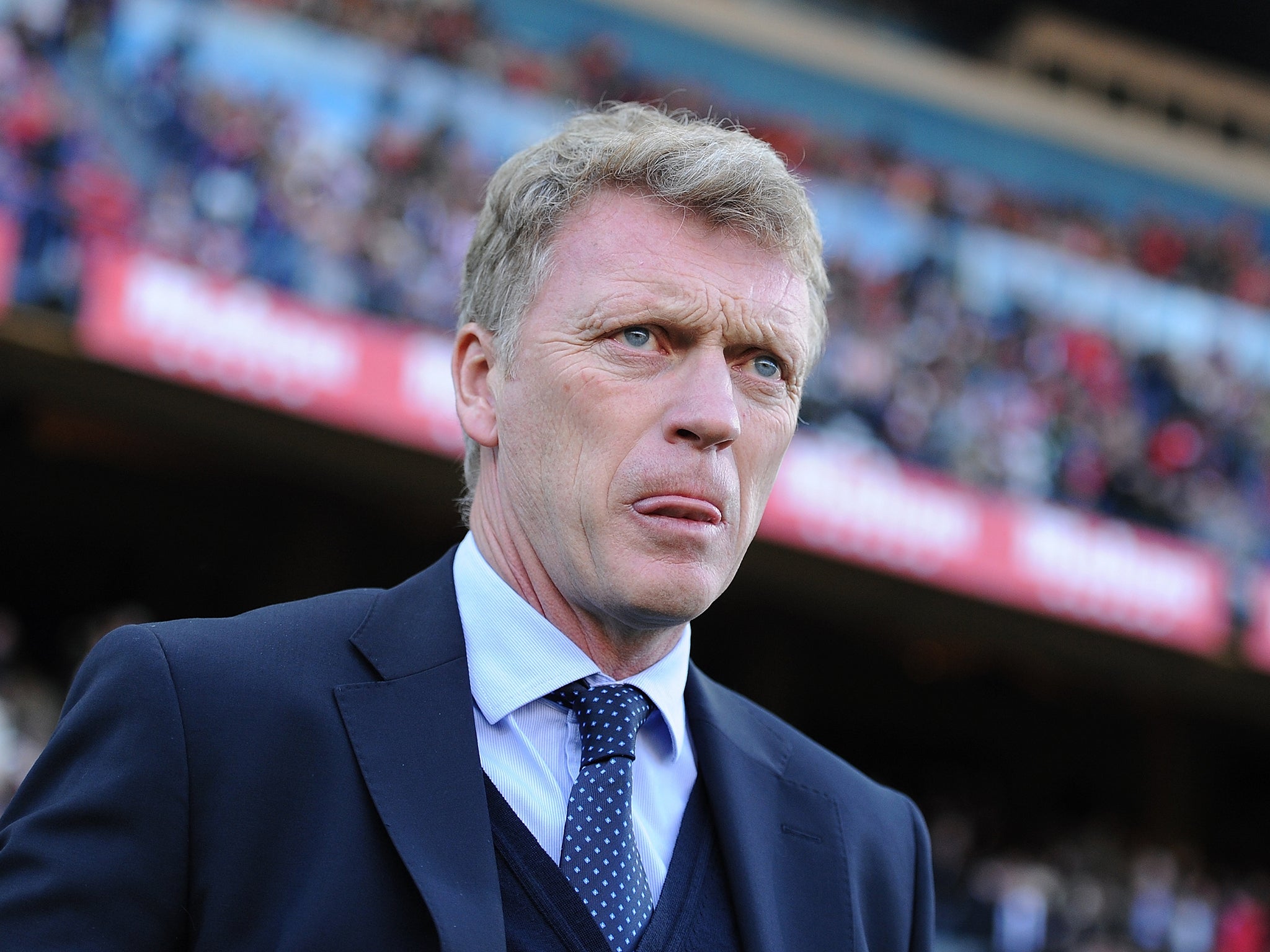
Your support helps us to tell the story
From reproductive rights to climate change to Big Tech, The Independent is on the ground when the story is developing. Whether it's investigating the financials of Elon Musk's pro-Trump PAC or producing our latest documentary, 'The A Word', which shines a light on the American women fighting for reproductive rights, we know how important it is to parse out the facts from the messaging.
At such a critical moment in US history, we need reporters on the ground. Your donation allows us to keep sending journalists to speak to both sides of the story.
The Independent is trusted by Americans across the entire political spectrum. And unlike many other quality news outlets, we choose not to lock Americans out of our reporting and analysis with paywalls. We believe quality journalism should be available to everyone, paid for by those who can afford it.
Your support makes all the difference.David Moyes likes things to be done properly. That is one of the reasons why he’ll never forget an exchange of letters with Bobby Robson 18 years ago. As an aspiring coach at Preston North End, still months from taking his first job in management, he asked Britain’s most distinguished manager working abroad if he could visit him in Barcelona.
“I was a young coach trying to find places to go and football to see. So I wrote him a letter and I got no reply,” he says. “Then about two months later a letter came back to say: ‘I’m really sorry, David, your letter had been put to the bottom of the pile; you’re very welcome to come out here, I would love to see you and it is great to hear that you’re interested… but I might be about to lose my job.’
“I kept the letter because it was a great example of how managers should deal with people – it was handwritten by Sir Bobby, not just typed out by the secretary. And he did lose his job at the end of that season – to Louis van Gaal.”
What a conversation the two men would have now. Moyes, also succeeded by the Dutchman, but off to the Nou Camp on Saturday, rebuilding his career in La Liga with Real Sociedad and embracing a foreign football culture as Robson did perhaps better than anyone.
Moyes is also proving to be every bit as much the football survivor as Sir Bobby. Robson drank from the poisoned chalices of both the England and Barça jobs and his career kept rolling on. Moyes could have sunk without trace after those 10 months at Old Trafford but instead he has resurfaced at a place where there is never a dull moment. A fortnight ago it was the Basque derby, today it’s Lionel Messi, next week they could all be out on strike, with the Spanish FA at war with the Spanish league.

“I’m going to be here next season,” Moyes says emphatically. And he admits to wanting to bring in two or three British players and some Premier League intensity. This is a culture where everyone is comfortable on the ball but the ball is too often not in play because players go down easily or it is kicked out by the opposition. A high-energy side who go against that grain could really prosper.
“I hope I can make Real Sociedad play with a faster, more intense, British style,” he says. But he doesn’t want to be the know-it-all outsider, and as if to prove that point when he picks an example of robust durability he doesn’t pick a Brit, he picks the man he faces today.
“Messi gets kicked by everyone and gets up and carries on. He doesn’t scream and he doesn’t fake injury. He is the one player you’d think would have the most right to stay down but he is the one who sets the best example.”
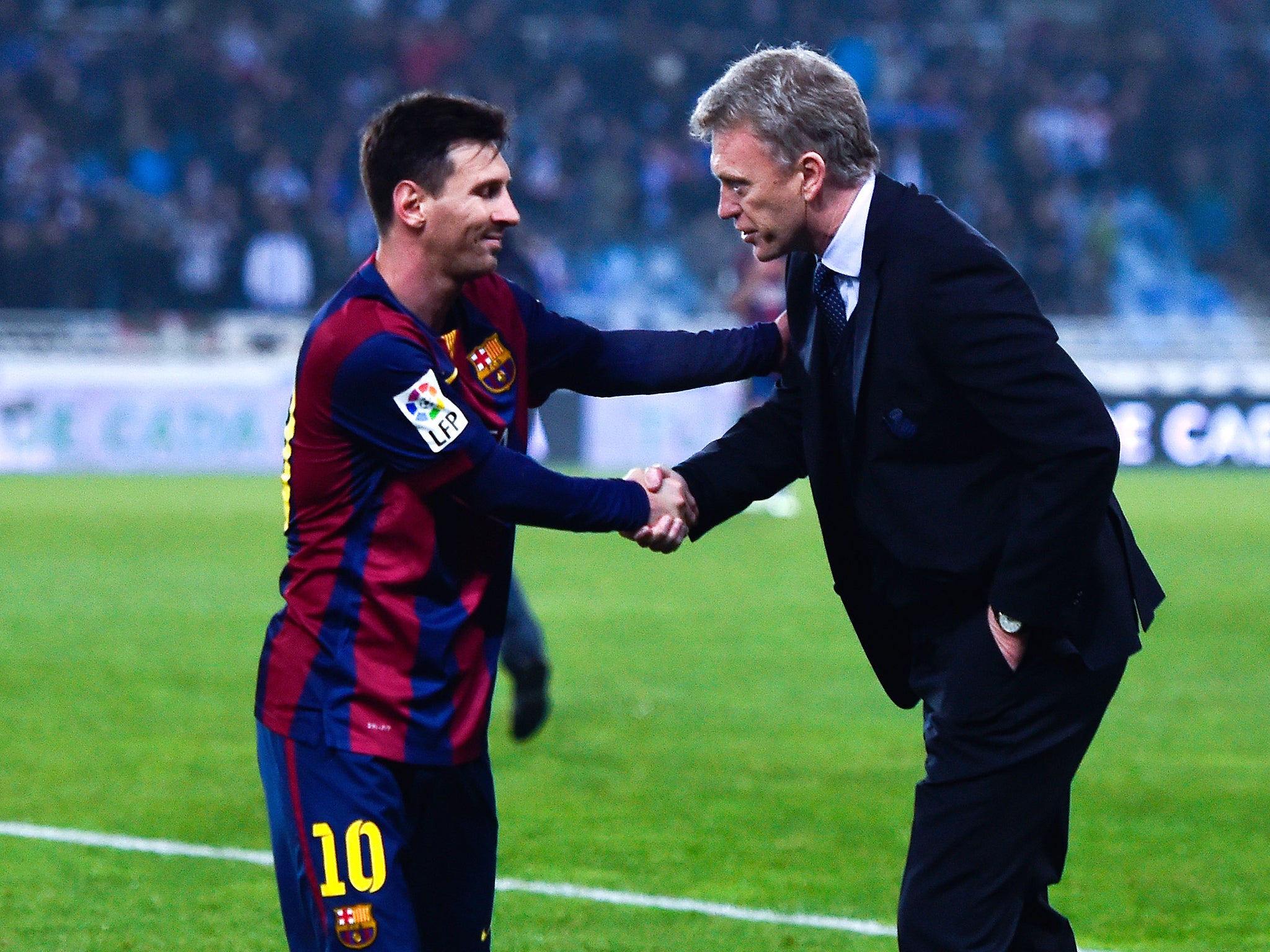
Moyes jokes that the Argentine also never seems to miss a match and that he might be due a day off when Sociedad visit Barcelona on Saturday. It is more likely to be Luis Suarez who is rested, because he is one yellow card from suspension. At Liverpool, Suarez had a run-in of sorts with Moyes, diving at his feet to celebrate a goal against Everton, although he claimed in his book Crossing the Line that Moyes took the joke well.
“I did,” he says. “The game went to 2-2 and I can remember saying if we scored the late winner I would have marked up a first for managers, because I would have run on to the pitch and dived in front of him.
“I had said that he was going down too easily, and fair play to him for his response. I don’t need to say what a top player he is and he’s not given enough credit for the way he works for the team.”
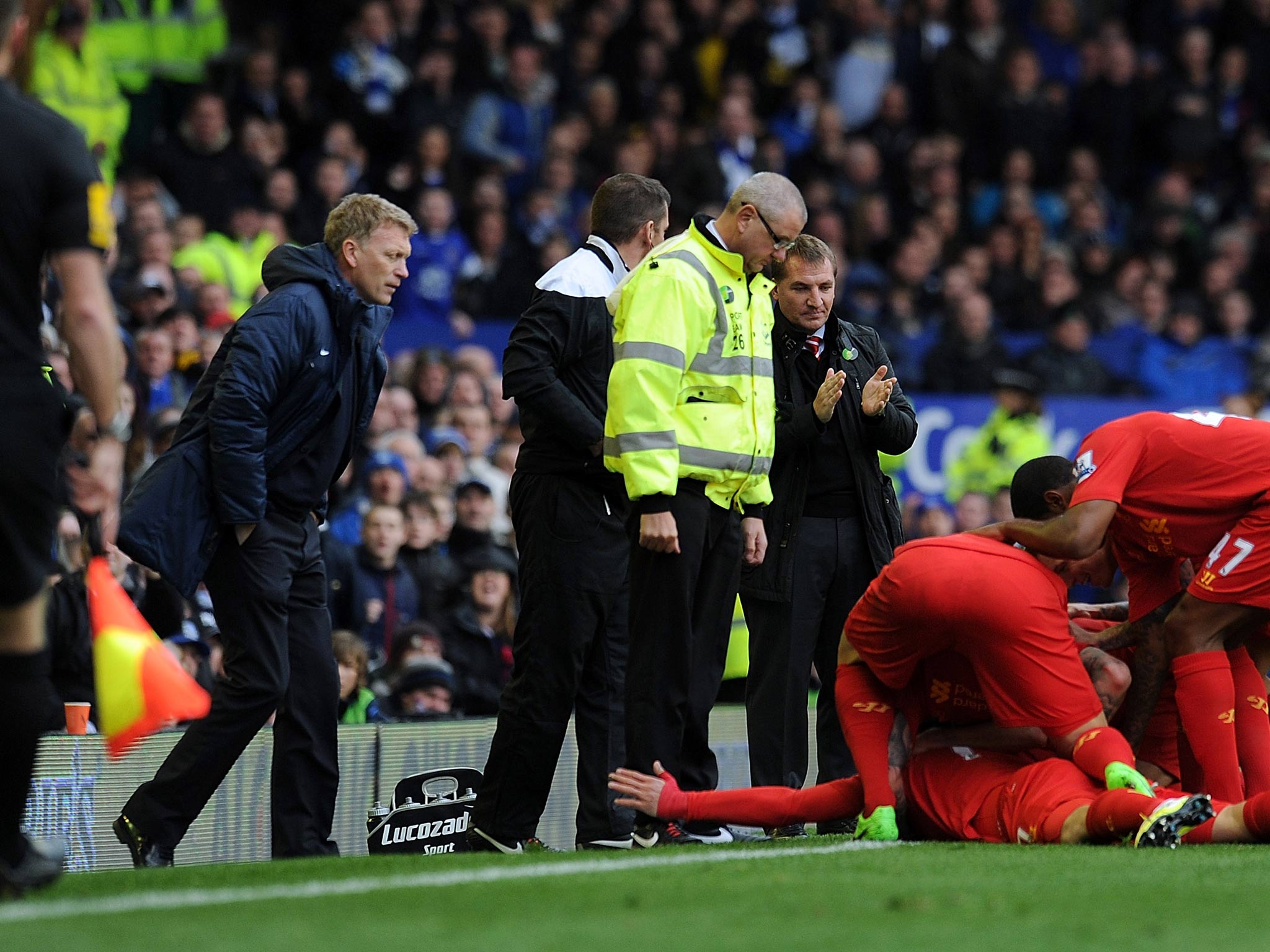
Moyes has already beaten Barcelona once this year. The 1-0 win in January provoked a meltdown that threatened to ruin the Catalan club’s season before they went on a run of 27 wins in 29 games. That victory was a throwback to his days on Merseyside when he was humbling mightier opponents and he describes the process in San Sebastian as “a bit like building Everton”.
He has inherited a team who finished fourth two years ago but sold goalkeeper Claudio Bravo, midfielder Asier Illaramendi and striker Antoine Griezmann.
“If someone said, ‘You’ll have those three back tomorrow’ then people would be saying, ‘Oh boy, Real Sociedad are going to have a decent team’. I need to find players who can do what they did.”
Moyes’ reputation at Everton for prudent and hugely productive signings goes before him but this time he must work without the vast knowledge of the local lower leagues that enabled him to sign the likes of Tim Cahill and Phil Jagielka.
Sociedad don’t scout widely enough for his liking and he wants to add another chief scout to his team. “People can see it as an added cost but I see it as saving money. We want Real Sociedad to be ready when the money becomes available,” he says of the imminent increase in TV revenue for smaller clubs.
He is proud of how he worked within a £5m budget when he joined Everton. The stories of driving to Molineux to watch Joleon Lescott 25 times before deciding to sign him, and of going to scout Vedran Corluka in Zagreb and ending up spotting a “wee boy called Modric”, who he thought was fantastic but ultimately did not get, bear witness to the methodical professionalism Real Sociedad want to tap into.
Danny Ings remains a priority and, although locals are wary of the club – which until 1989 still had a Basque-only policy – losing its identity, he is confident “it will not be seen as outrageous if two or three British players arrive.” And, for all the talk of intensity, Moyes says that he will only bring players who he feels will suit La Liga’s style. He picks out Leon Osman and Steven Pienaar when asked which of his former players he would happily magic into his current squad.
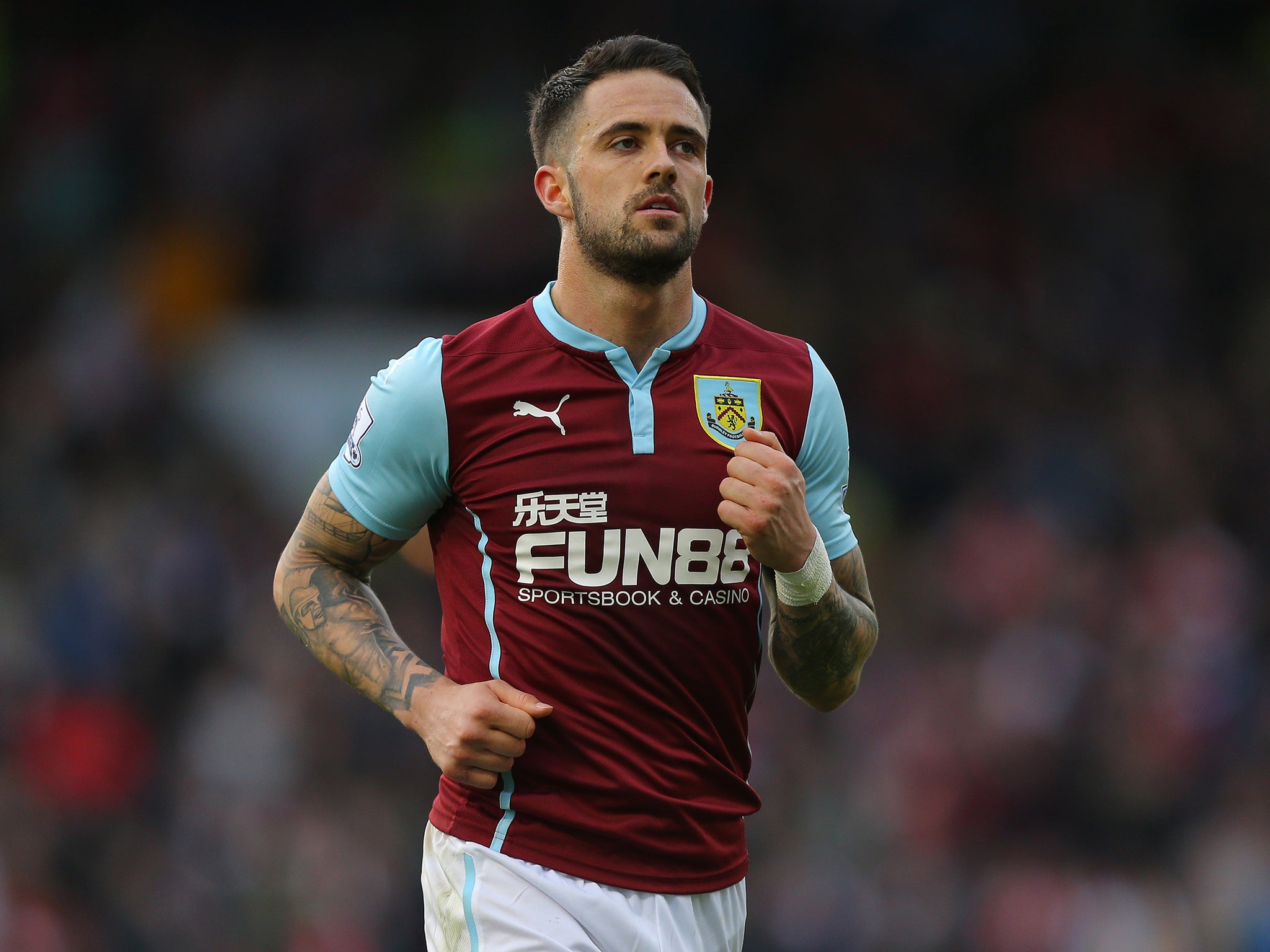
Mikel Arteta phoned him before he took the job. The former La Real midfielder gave Moyes a glowing reference to the Real Sociedad president, Jokin Aperribay, and he still has a house in San Sebastian, although Moyes says he is happy at Arsenal.
“You have to get the right players to fit in here,” he says. And when asked to name someone whose style might have suited La Liga more than the Premier League he picks Michael Carrick. “He always knows what his next pass is before he receives the ball.”
Former Arsenal forward Carlos Vela and defender Inigo Martinez are the pick of the players he does have. And he admits to being still in the process of really getting to know the group.
He has bright young bilingual assistant Erik Bretos to help him get over the language barrier. Does it not slow down the flow of the half-timing rollicking when he has to keep stopping to allow for translation?
“I can assure you a bollocking in any language sounds the same,” he says. “Eric knows when the message is getting across; he’s not trying to note down every F-word before reading it back to them.”
As we stroll around the streets of San Sebastian after the interview Moyes is stopped by supporters who want photographs and he also gets an arm around the shoulder from a holidaying Everton fan, who thanks him for “some great years” at Goodison.
“I would never have left Everton if not for the call to join Manchester United,” he says. “I thought I was leaving to win leagues and cups. I’m big enough to say that in football you have to win enough games but I always felt that Manchester United was a club that would give managers time. I had worked incredibly hard to get to the top level and I felt that it was taken away from me very quickly.”
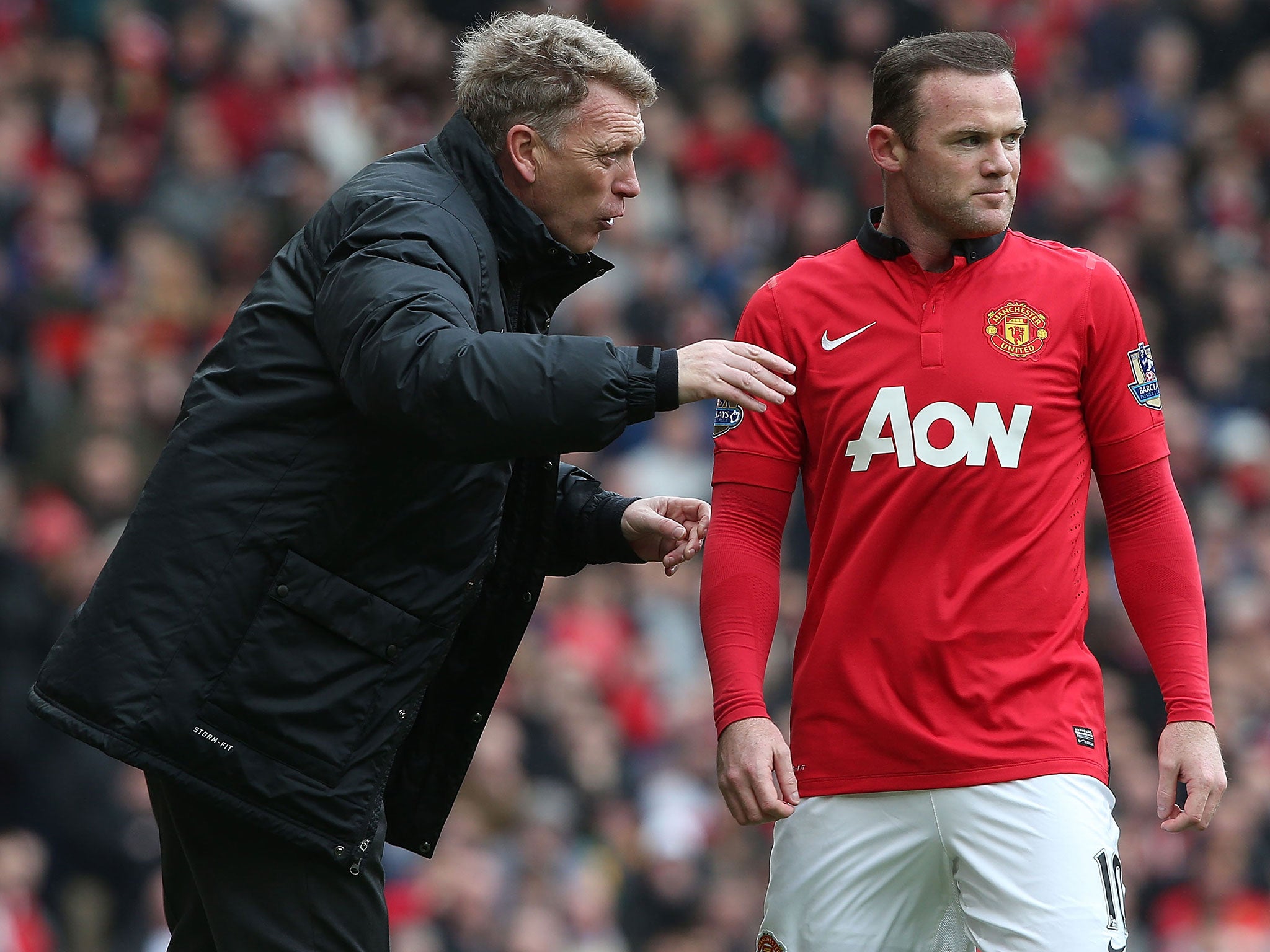
He doesn’t want his story to be a hard-luck one any more, though – and why should it be when he is facing Barcelona as the only British manager working in a top league abroad?
“We’ve brought in a lot of great managers to the Premier League, but we’ve also brought in some who have been not so good,” he says. “So I’ve always asked, ‘Why do we not export more British managers?’”
Now he is leading by example – a trailblazer like Bobby Robson two decades ago.
Join our commenting forum
Join thought-provoking conversations, follow other Independent readers and see their replies
Comments